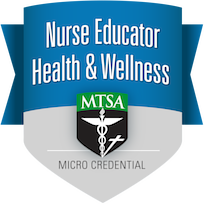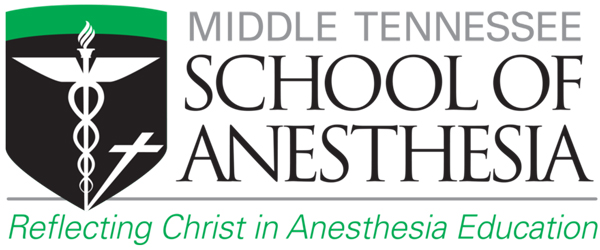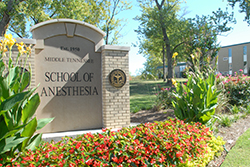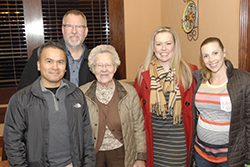Nurse Anesthesia Educator Mini Conference - Spring 2025
April 6: 8 a.m. – 4:30 p.m. (lunch included)
April 7: 8 a.m. – Noon
Cost: Early Bird Pricing – $400
Location: MTSA Campus, 315 Hospital Drive, Madison, TN 37115
14 CEUs
REGISTER NOW»
Our Spring Nurse Educator Mini-Conference is here! This engaging workshop offers tailored sessions for both new and experienced educators in the nurse anesthesia field. Through evidence-based strategies, interactive discussions, and hands-on learning, attendees will explore topics such as transitioning from clinician to educator, self-care for nurse anesthesia educators, and applied teaching in clinical settings. Designed to foster collaboration and professional growth, the workshop empowers participants to enhance their teaching practices and support academic excellence.
Courses Include:
Applied Teaching in Clinical Settings (8 CEUs)
Real-world precepting techniques to improve student learning and patient safety.
This course offers an in-depth exploration of all aspects of education within the clinical environment, focusing on the art and science of instructing and mentoring learners in real-world anesthesia practice. This approach seamlessly integrates theoretical knowledge with hands-on experience, enabling learners to bridge the gap between classroom learning and practical application in patient care. Designed for those passionate about clinical education, this course is essential for anyone committed to shaping the next generation of skilled anesthesia professionals using learning techniques that are evidence based and conducive to clinical learning. Simulation sessions and video feedback are included.
Bridging the Gap: Clinician to Educator (2 CEUs)
Guidance for new educators and mentors to navigate academic roles effectively.
This course is tailored for Certified Registered Nurse Anesthetists (CRNAs) who are transitioning into educational roles and for experienced faculty mentors supporting them during this career shift. The program provides evidence-based strategies to develop effective teaching practices, design curricula, and evaluate student performance within nurse anesthesia education. Additionally, it equips CRNAs with the knowledge of what to seek from mentors, institutions, and resources as they grow in their roles as educators. By fostering mentorship and addressing the specific needs of novice educators, this course helps shape a collaborative and supportive environment for CRNAs entering academia.
Self-Care for Nurse Anesthesia Educators (2 CEUs)
Practical strategies to manage stress, prevent burnout, and enhance well-being.
This course equips nurse anesthesia educators with tools to address the high emotional demands, teaching pressures, and clinical responsibilities they face. By highlighting the link between self-care and burnout prevention, it explores common stressors like heavy workloads, work-life imbalance, and their impact, including burnout and reduced efficacy. Participants will learn evidence-based strategies, the importance of fostering social connections within a healthy work environment and leveraging organizational support. Attendees will leave with personalized self-care plans to enhance resilience, sustain health, and thrive in their professional roles.
Critical Appraisal (1 CEU)
In a journal club format, we will use different tools to appraise articles related to conference content.
Who Should Attend?
- Mentors supporting new educators.
- Experienced and novice educators.
- Clinical Preceptors, coordinators, educators
- Nurse anesthesia professionals interested in academic teaching.
- Limited to 15 participants.
The 1.5-day workshop aims to:
- Enhance Educator Preparedness: Equip new and experienced educators with evidence-based strategies and tools for effective teaching in nurse anesthesia programs.
- Promote Professional Growth: Facilitate the development of practical skills, mentorship techniques, and self-care strategies to ensure professional resilience and effectiveness.
- Foster a Collaborative Community: Create a space for nurse educators to exchange ideas, share experiences, and build supportive networks that promote academic excellence.
- Bridge the Theory-to-Practice Gap: Empower participants to translate theoretical knowledge into practical applications within clinical teaching settings.
- Advance Student Outcomes: Strengthen participants’ ability to mentor and teach in ways that prioritize student success and patient safety.
Participants will leave the conference equipped with practical strategies for clinical precepting, effective communication, and managing diverse learning styles, alongside evidence-based self-care practices to prevent burnout and enhance well-being. They will gain insights into mentorship techniques to support novice educators and foster professional relationships, as well as exposure to innovative teaching methods such as simulation and hybrid models. Additionally, the conference provides a valuable opportunity to build collaborative networks with peers and mentors, enabling the exchange of experiences and best practices. Together, these takeaways empower educators to enhance their teaching, support student success, and maintain personal and professional balance.
Option to take courses a la carte.
 Add-on Option to earn Nurse Educator: Health and Wellness Micro-Credential (8 CEUs) $280
Add-on Option to earn Nurse Educator: Health and Wellness Micro-Credential (8 CEUs) $280
Register for Micro Credential»
Watch the video below for “reflections on QPR Suicide Awareness Training,” which is part of the Mini Conference!








